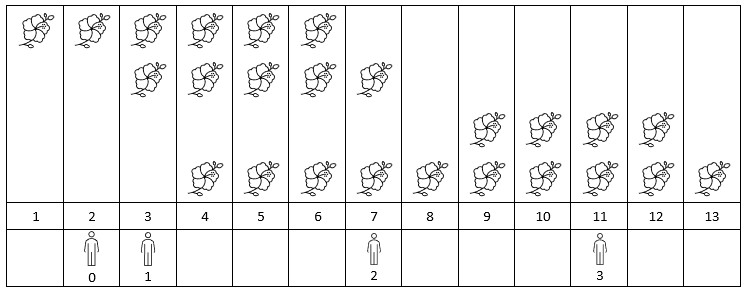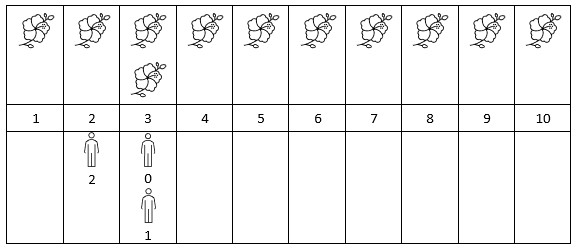Line sweep Technique / 2251. Number of Flowers in Full Bloom
Problem Statement
Input: flowers = [[1,6],[3,7],[9,12],[4,13]], poeple = [2,3,7,11]
Output: [1,2,2,2]
Explanation: The figure above shows the times when the flowers are in full bloom and when the people arrive.
For each person, we return the number of flowers in full bloom during their arrival.Input: flowers = [[1,10],[3,3]], poeple = [3,3,2]
Output: [2,2,1]
Explanation: The figure above shows the times when the flowers are in full bloom and when the people arrive.
For each person, we return the number of flowers in full bloom during their arrival.Intuition
Links
Video Links
Approach 1:
Approach 2:
Approach 3:
Approach 4:
Similar Problems
Last updated

